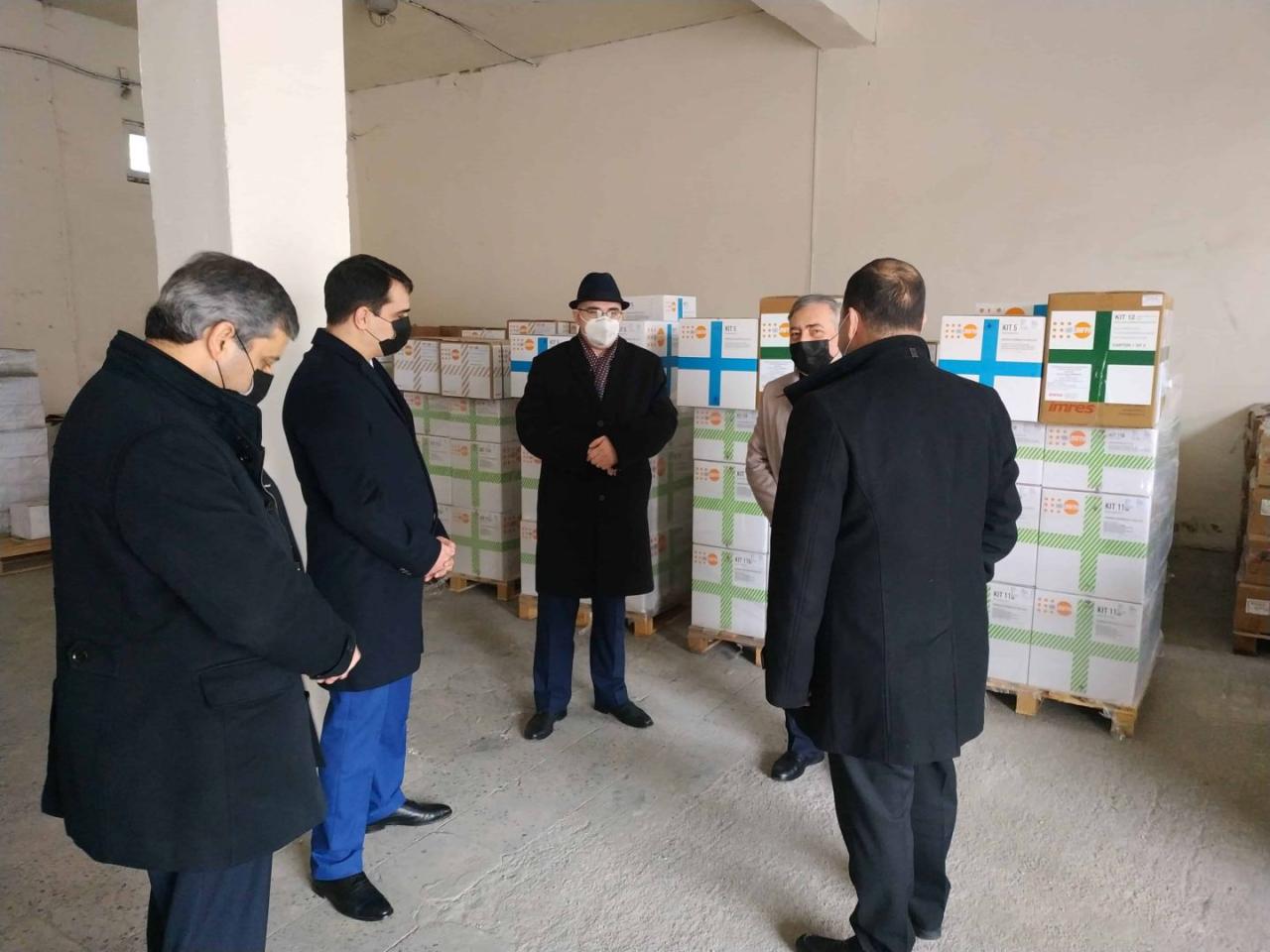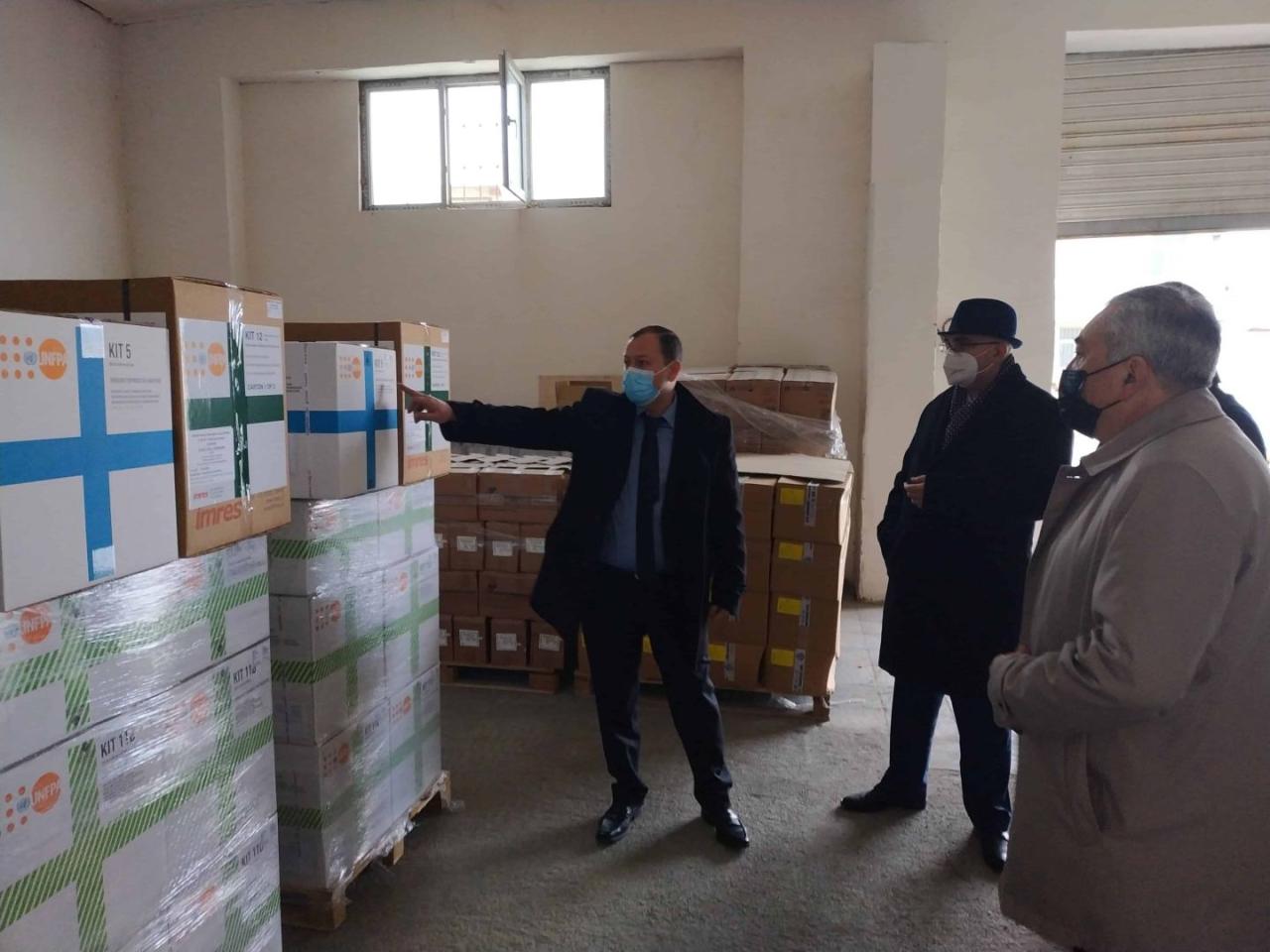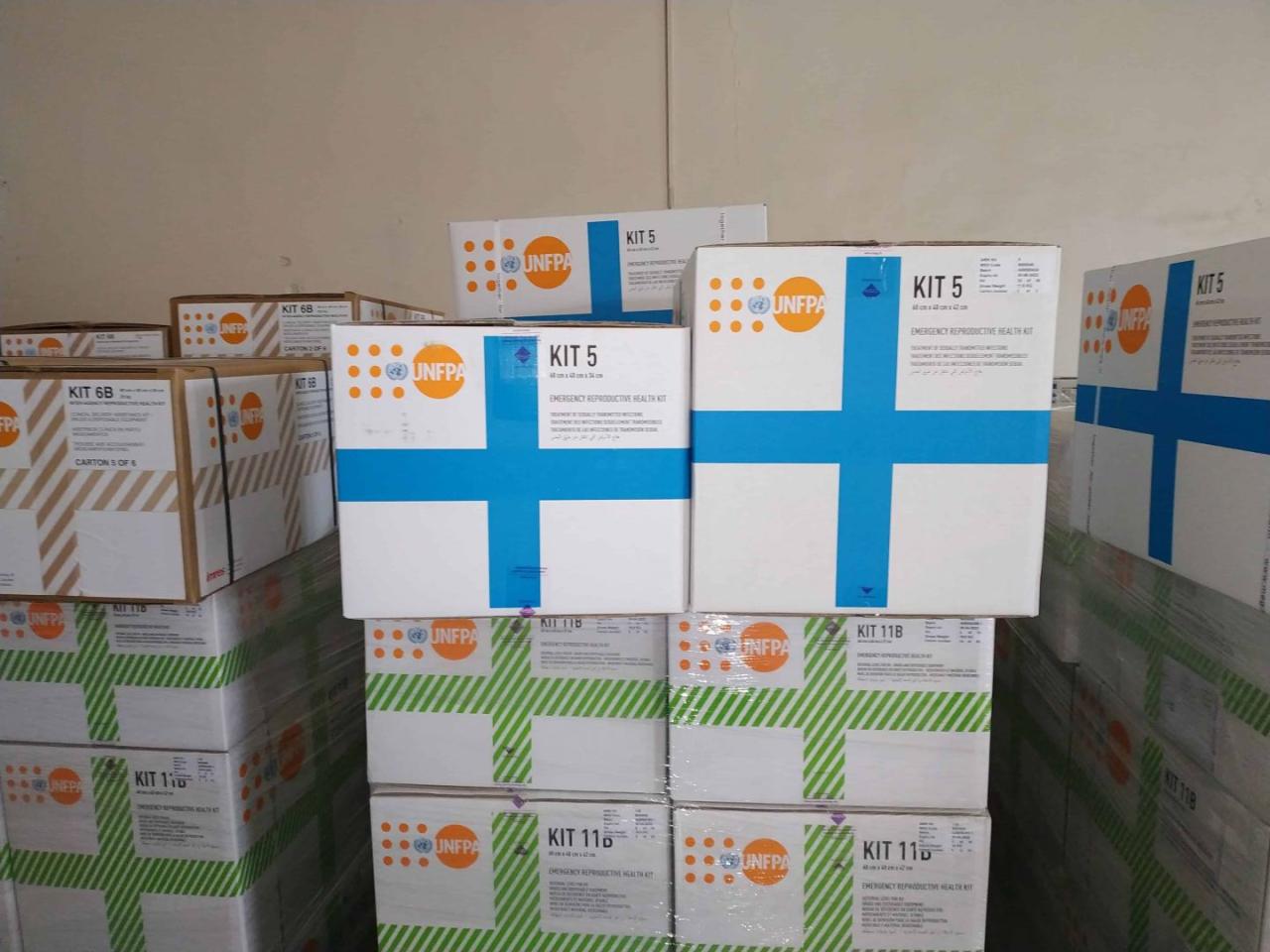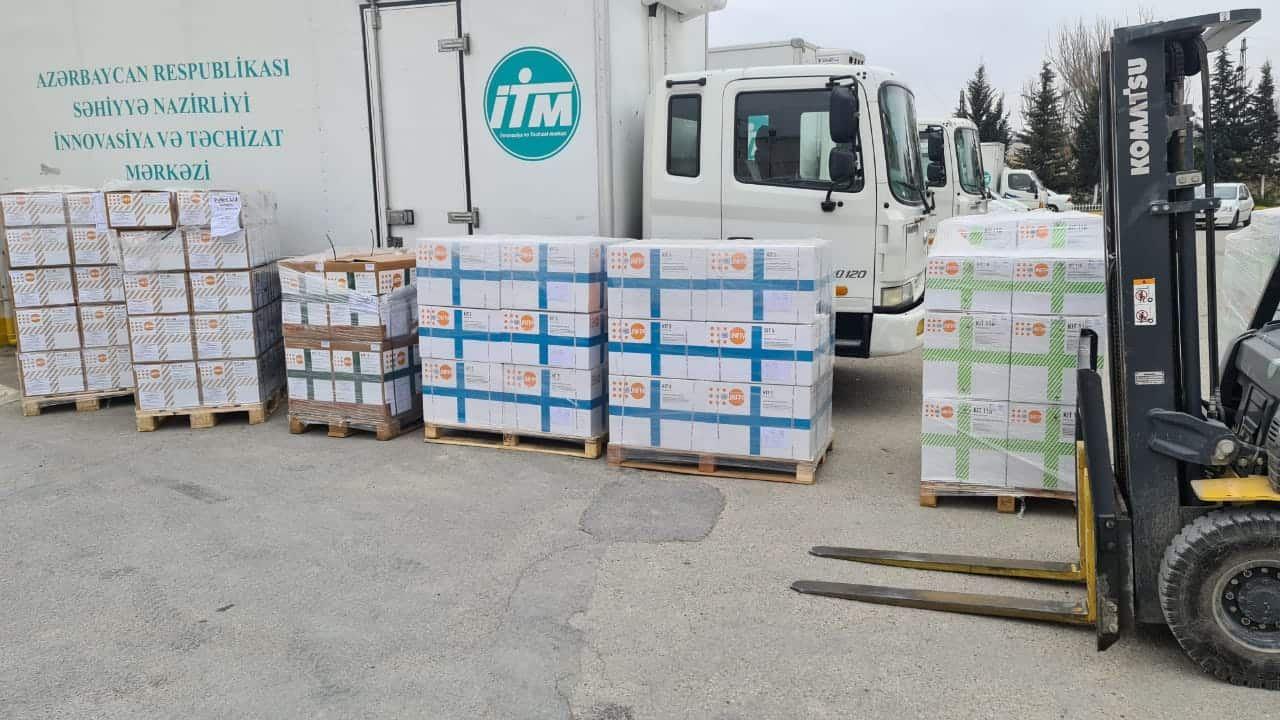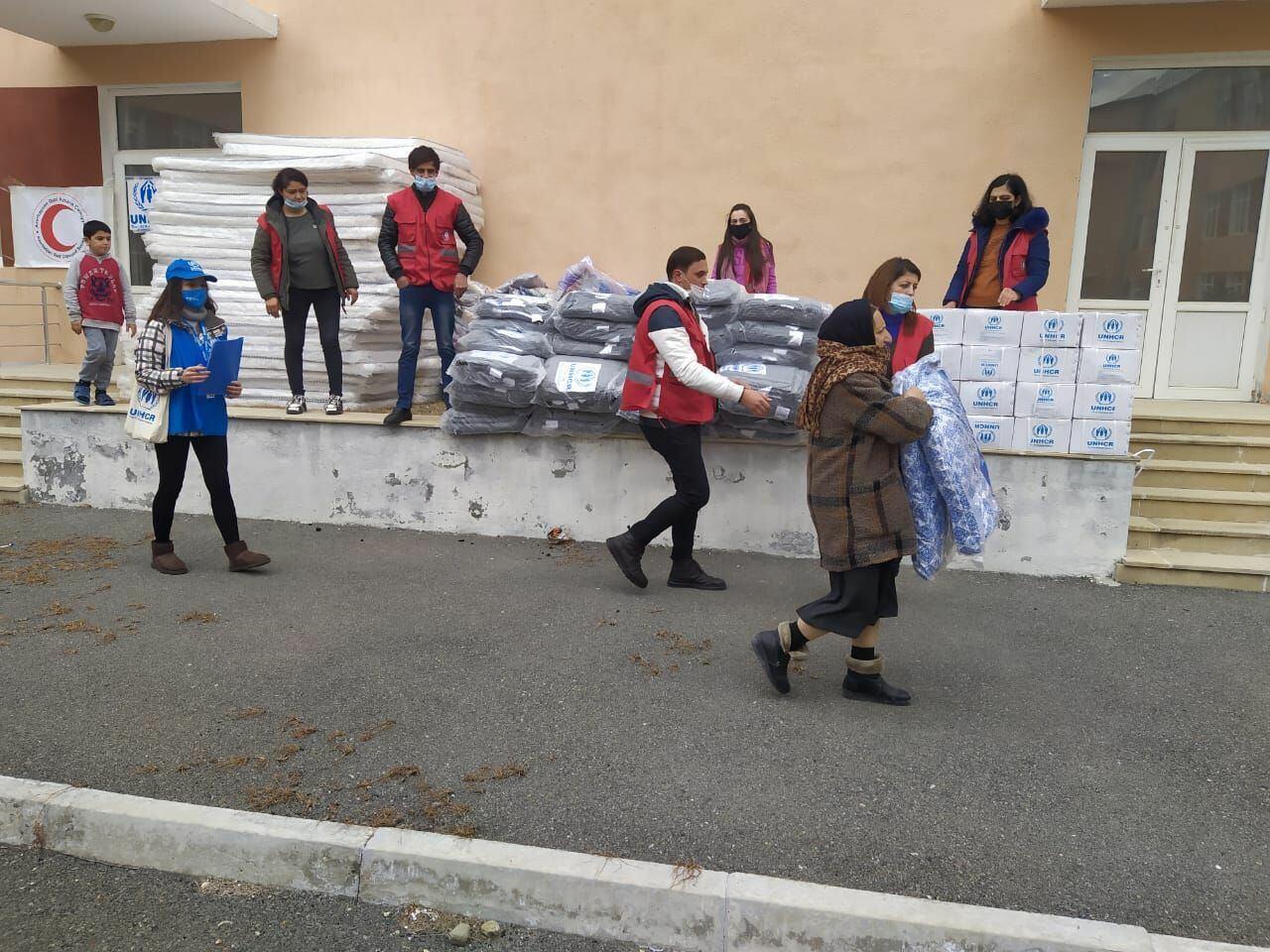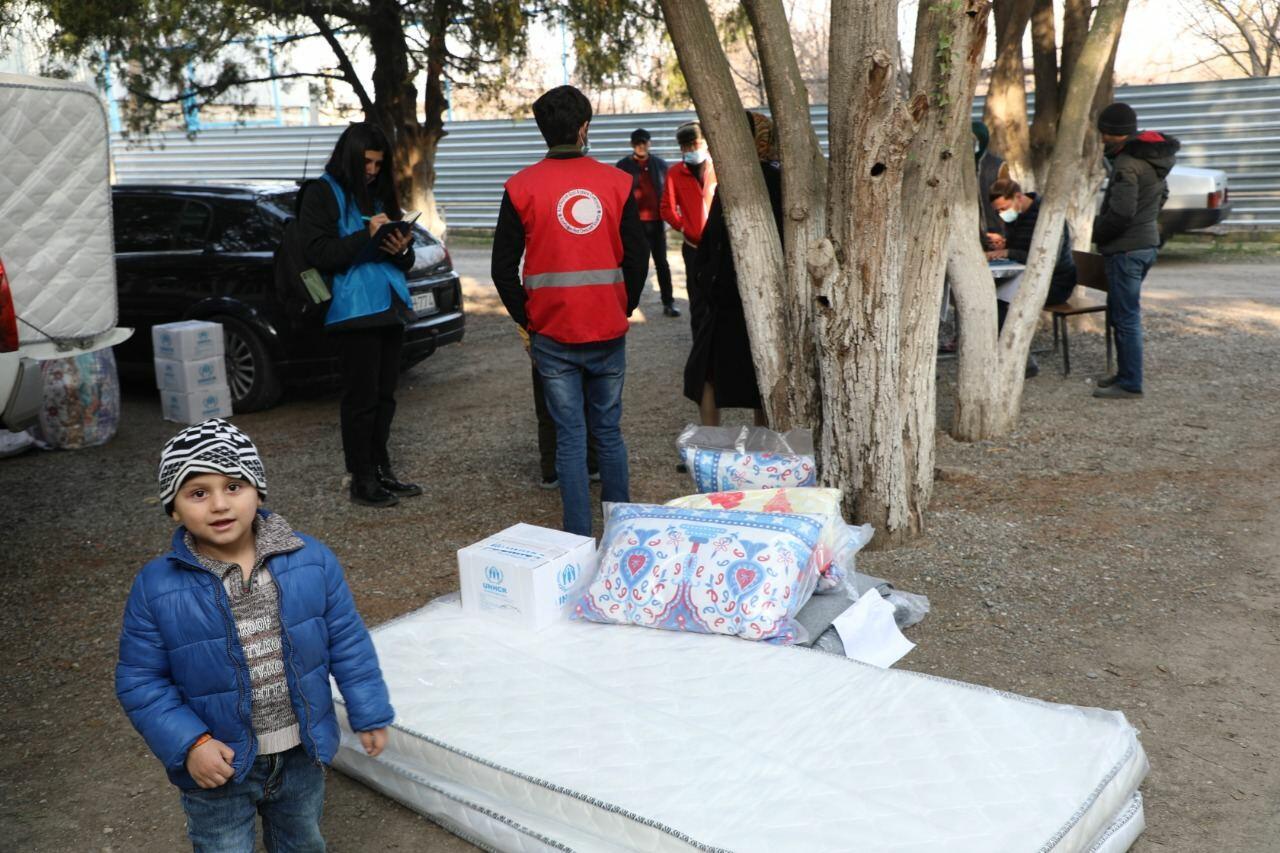UN agencies, Japan aid Azerbaijan to address humanitarian needs after Karabakh war
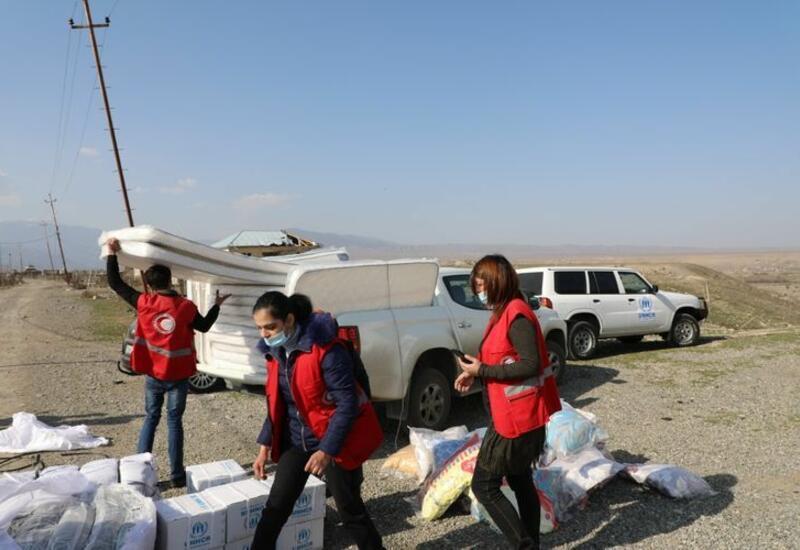
By Vafa Ismayilova
The UN Population Fund (UNFPA), the UN High Commission for Refugees (UNHCR) and the Japanese embassy have sent aid to Azerbaijan's war-torn areas.
The UNFPA country office in Azerbaijan has completed the procurement and delivery of 32 emergency ISRH kits consisting of medical and reproductive health supplies to the Azerbaijani Health Ministry's Innovation and Supply Centre, UNFPA office in Azerbaijan reported on February 17.
The kits include medical items intended for the treatment of infectious diseases, clinical delivery assistance, referral level of RH, and blood transfusion, according to the UNFPA.
The kits will further be distributed to the medical personnel of regional hospitals operating in eight districts (Aghdam, Barda, Tartar, Goranboy, Goygol, Aghjabadi, Ganja, Mingachevir) affected during the recent war.
Over the past 25 years of its operation in Azerbaijan, UNFPA has been focusing on enhancing the national capacity to improve the availability, accessibility, and utilization of population data as a basis for formulating, implementing, and monitoring national policies and programs to appropriately address both current and future needs.
Day.az reported on February 18 that the Azerbaijan Red Crescent Society started to distribute essential items provided by UNHCR to Azerbaijanis, who were affected by the 44-day war in Nagorno-Karabakh.
The UNHCR office said that the agency had sent to Azerbaijan 30,000 blankets, 10,000 square metres of plastic tents, 4,000 kitchen sets, 443 sets of sanitary and hygienic accessories, 12,000 pillows and 2,554 mattresses.
This number of essential items have been allocated for 2,400 families (over 10,000 people).
Meanwhile, Trend reported, quoting the Japanese embassy that the Japanese government decided to allocate an urgent grant to Azerbaijan in the amount of $1.2 million.
The grant is allocated to tackle the humanitarian crisis as a result of the 44-day hostilities between Armenia and Azerbaijan. The grant covers assistance, namely, medical equipment to one leading clinic; providing safe access to water sources for about 500 people; restoration of temporary shelters for about 6,400 people and providing them with heating supplies; food to approximately 8,000 people.
"After Azerbaijan gained independence, the Japanese government began to implement the development assistance projects in Azerbaijan. Until now it has issued concessional loans worth about $1 billion and implemented grant projects worth more than $100 million. Japan intends to continue to render assistance to Azerbaijan," the embassy said.
During the war, losing on the battlefield, Armenia resorted to vicious attacks against Azerbaijani civilians, killing 100 Azerbaijani civilians, including 12 children, and wounding over 400 by targeted missile attacks on major Azerbaijani cities outside of the war zone, using even widely banned cluster munitions.
On November 10, Baku and Yerevan signed a Moscow-brokered deal that brought an end to six weeks of fighting between Armenia and Azerbaijan. The Azerbaijani army declared a victory against the Armenian troops. The signed agreement obliged Armenia to withdraw its troops from the Azerbaijani lands that it has occupied since the early 1990s.
On January 11, the Azerbaijani, Russian and Armenian leaders signed the second statement since the end of the 44-day war. The newly-signed statement is set to implement clause 9 of the November 2020 statement related to the unblocking of all economic and transport communications in the region.
--
Follow us on Twitter @AzerNewsAz
Here we are to serve you with news right now. It does not cost much, but worth your attention.
Choose to support open, independent, quality journalism and subscribe on a monthly basis.
By subscribing to our online newspaper, you can have full digital access to all news, analysis, and much more.
You can also follow AzerNEWS on Twitter @AzerNewsAz or Facebook @AzerNewsNewspaper
Thank you!

